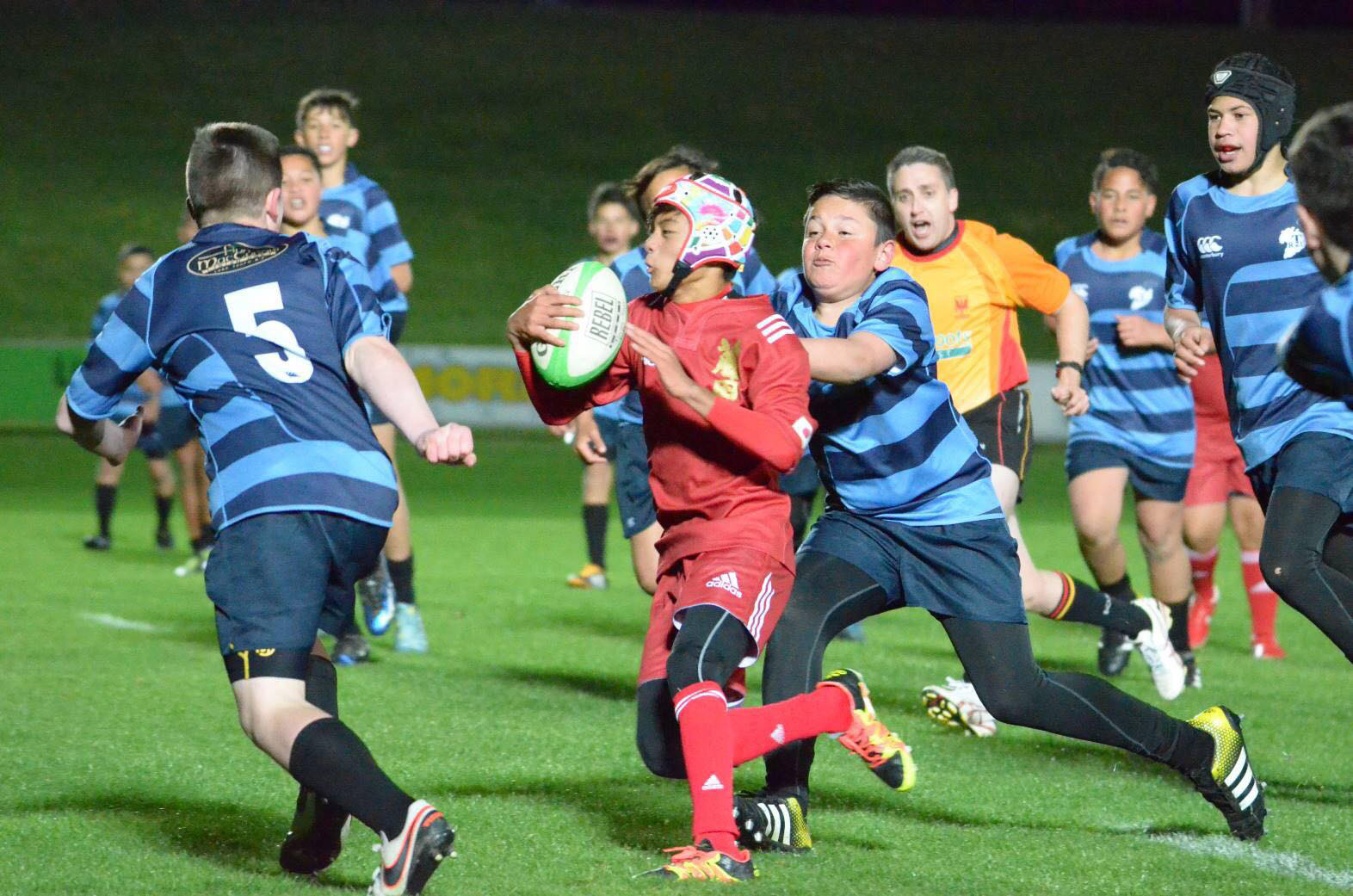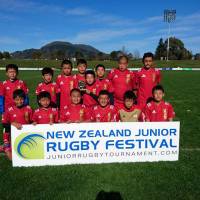The rising popularity of rugby in Japan is having spinoff effects for the nation's relationship with New Zealand as students increasingly choose to study in the rugby stronghold.
After the Brave Blossoms' historic victory against South Africa in the 2015 Rugby World Cup in the U.K. and ahead of Japan's turn as World Cup host in 2019, rugby fever has gripped Japan. For New Zealand, known as the rugby nation, this means golden opportunities for its education market.
According to the New Zealand Ministry of Business, Innovation and Employment, it hopes to double the value of international education to 5 billion New Zealand dollars (¥372.4 billion) by 2025.
Japan, meanwhile, hopes to boost the number of university students studying abroad from 60,000 to 120,000 and the number of high school students from 30,000 to 60,000 by 2020, according to the Ministry of Education, Culture, Sports, Science and Technology.
"There were many inquiries from parents (in Japan) toward the end of last year. I have students planned for next year and some for the year after," said Toshio Ishiguro, an Auckland agent at New Zealand Tours & Sports Link. "The number of short-term rugby exchange students increased by nearly 50 percent from last year."
Earlier this month, New Zealand's Papatoetoe Rugby Football Club Under-10 Avengers team welcomed young rugby players from all over Japan to participate in the New Zealand Junior Rugby Festival Taupo 2016, a junior rugby tournament.
Nearly 100 Japanese boys mostly aged 9 to 13 participated in the trip, arranged by rugby academy Fujita Juku, which has bases in Tokyo and Kyoto.
Welcomed with a traditional Maori ceremony at Auckland international airport, it marked the first time a team from Japan had participated in the festival.
Ishiguro said Japanese teams had previously not taken part in the event because it was not known in Japan, and they didn't think it was worthwhile to attend overseas tournaments when students had school.
But he said this started to change when gaining overseas rugby experience began to be seen as more desirable in Japan following last year's Rugby World Cup.
"Many rugby heroes from last year's match have had overseas experiences, and that is considered one reason for Japan's victory last year. It motivated young players to gain overseas experience," he said.
Also boosting New Zealand's appeal is that the new coach of Japan's national team, Jamie Joseph, is a New Zealander. And many of last year's Rugby World Cup heroes, including Michael Leitch, Fumiaki Tanaka and Luke Thompson, are either from New Zealand or have ties with the country.
Kinya Fujikawa, a student at the University of Canterbury in Christchurch and former student supervisor for short-term rugby student exchanges from Japan, said this all helped New Zealand with its promotion as a rugby exchange destination.
Japan is currently New Zealand's third-largest source of international students, behind China and India, and the largest source of students for the English as a second language sector in New Zealand.
A total of 9,471 Japanese students studied in New Zealand last year, according to Education New Zealand (ENZ), a government agency for promoting international education.
Manami Nakagaki, whose son, Shotaro, currently studies at the University of Canterbury and plays for its rugby team, said an increasing awareness of the sport in Japan has influenced the image of New Zealand.
A safe and "green" perception of the country and cheaper tuition fees were also influencing factors for parents, said Nakagaki, who lives in Kanagawa Prefecture.
"People around me in Japan used to talk about the Christchurch earthquake (of 2011) when I said my son studies in New Zealand, but now they talk about rugby and the All Blacks," she said.
She said she believed the perception of the sport is changing. Rugby used to be considered "dangerous" but now it's seen as "cool," she said.
"It used to be the case where only those whose parents were involved in rugby played the sport, but that's not the case anymore," said Nakagaki, who wanted her son to learn the "no side" spirit of rugby, where competitors become friends after a match.
The length of the rugby programs vary from two weeks to three years, but for Shu Yoshimoto, a two-week high school rugby tour in 2008 was long enough to experience the differences in rugby cultures and decide that he wanted to come back one day to live and play rugby in New Zealand.
He has lived and worked as a chef in the country since 2013, and hopes to settle.
"There are pros and cons for each, but the Japanese rugby culture is somewhat more bureaucratic and inflexible compared to the one in New Zealand," said Yoshimoto.
He said Japan's emphasis on assigned positions and roles for players, as well as its hierarchical team structure, was often restrictive.
"Players in New Zealand can voice their opinions freely, and that translates into good team communication," said Yoshimoto.
He said for Japanese players, an overseas experience was more than learning about rugby, adding that his experience in a different culture also helped him "grow as a person."
In 2014, a sports and English education program, Game On English (GOE), was established between the two countries during Prime Minister Shinzo Abe's visit to New Zealand. Japanese students participating in the program learn both English and rugby while on exchange.
Misako Pitt, a Tokyo-based senior market development manager for ENZ, said 111 Japanese students have participated in GOE so far.
"And in May 2016, a series of GOE rugby public coaching sessions were held in Tokyo, Fukuoka and Sapporo, all of which are hosting cities for the 2019 Rugby World Cup," Pitt said.
Rugby has been an important part of bilateral relations since the 1980s, when top New Zealand players and coaches started living and working in Japan, according to Steve Jackson, a professor who specializes in sociocultural analysis of sports at the University of Otago in Dunedin on the nation's south island.
However, he added that increasing bilateral relations around the sport were "timely and logical" when looking at current cooperation between the two countries and their interests in sport, tourism and education.
"It is fair to say that as sport becomes more important on the global stage, not only in terms of raising the profile of nations and their national identity but as part of business and tourism, there is little doubt that it will become more strategic for diplomatic relations," said Jackson.
New sports-oriented programs are also being established by New Zealand institutions.
The University of Canterbury is currently working toward rugby matches with Japanese universities, said James Waghorn of the university's international office.






















With your current subscription plan you can comment on stories. However, before writing your first comment, please create a display name in the Profile section of your subscriber account page.